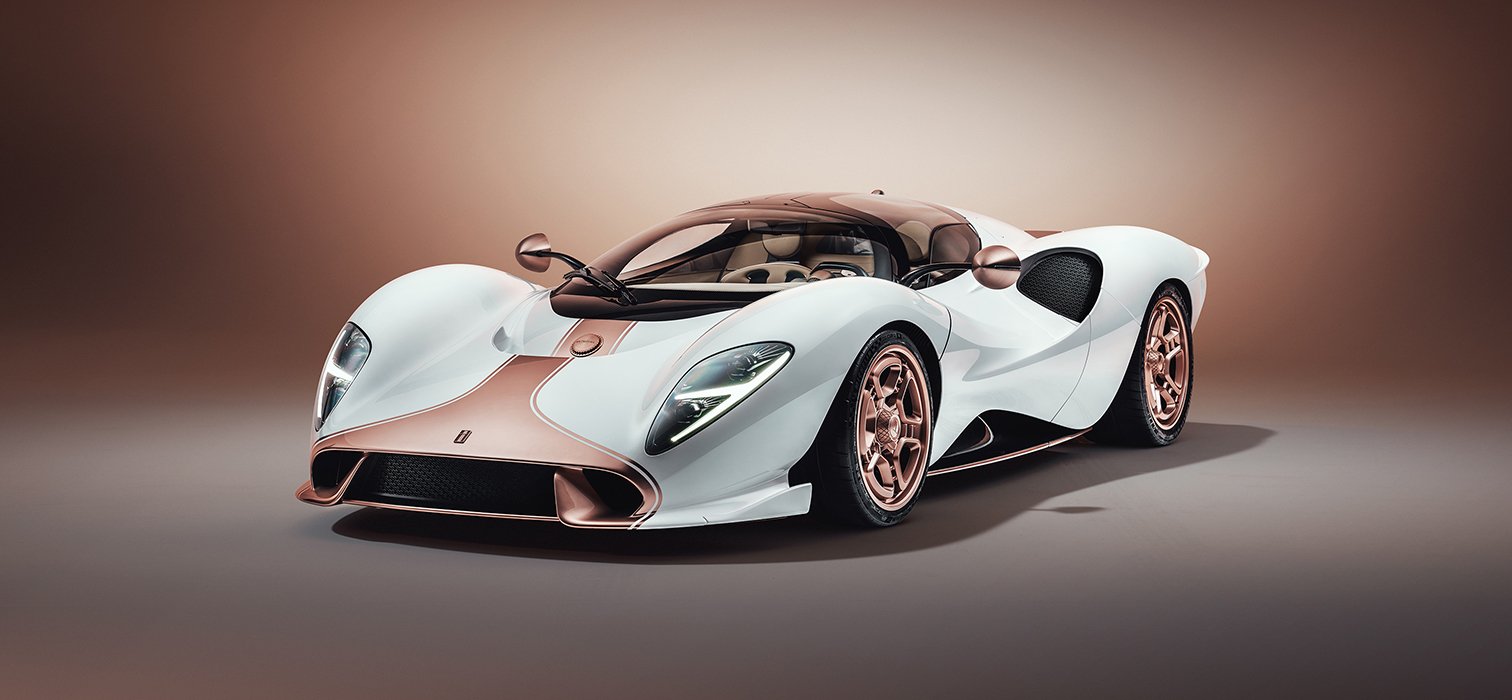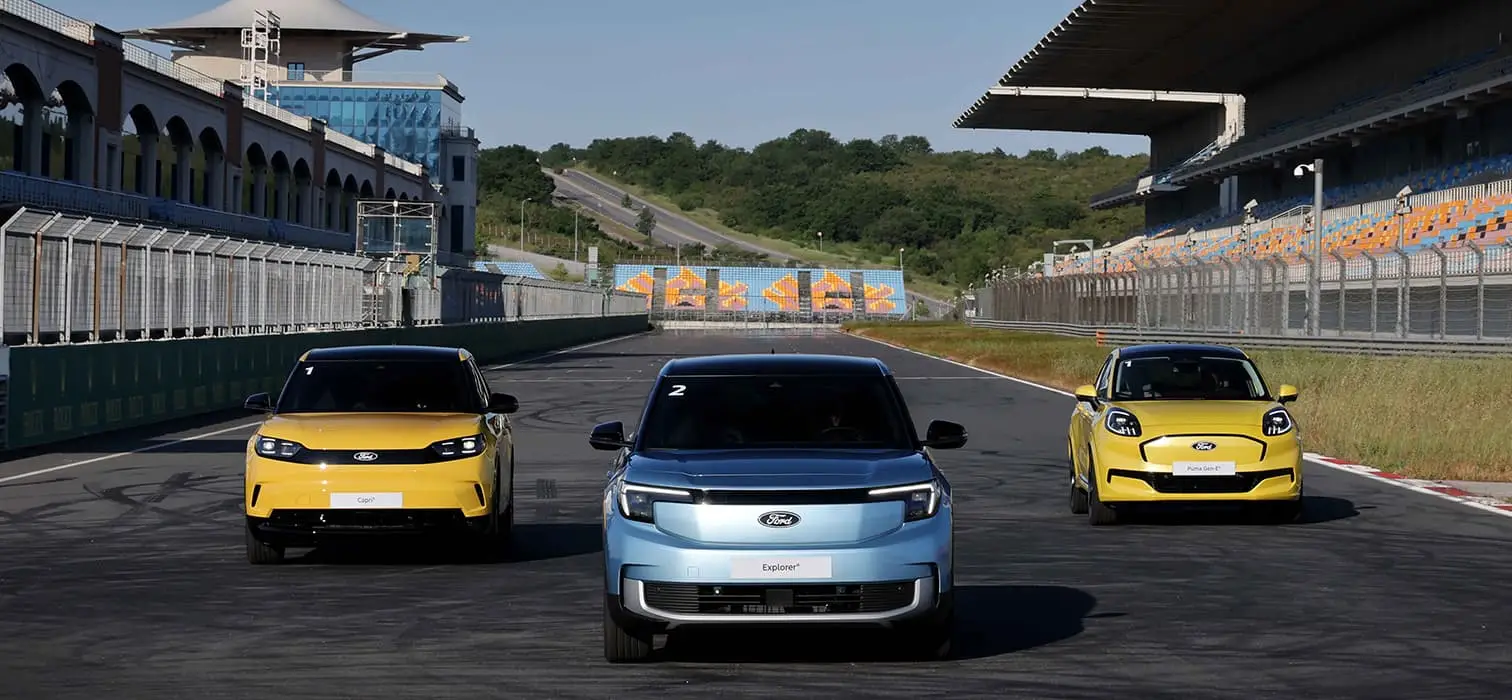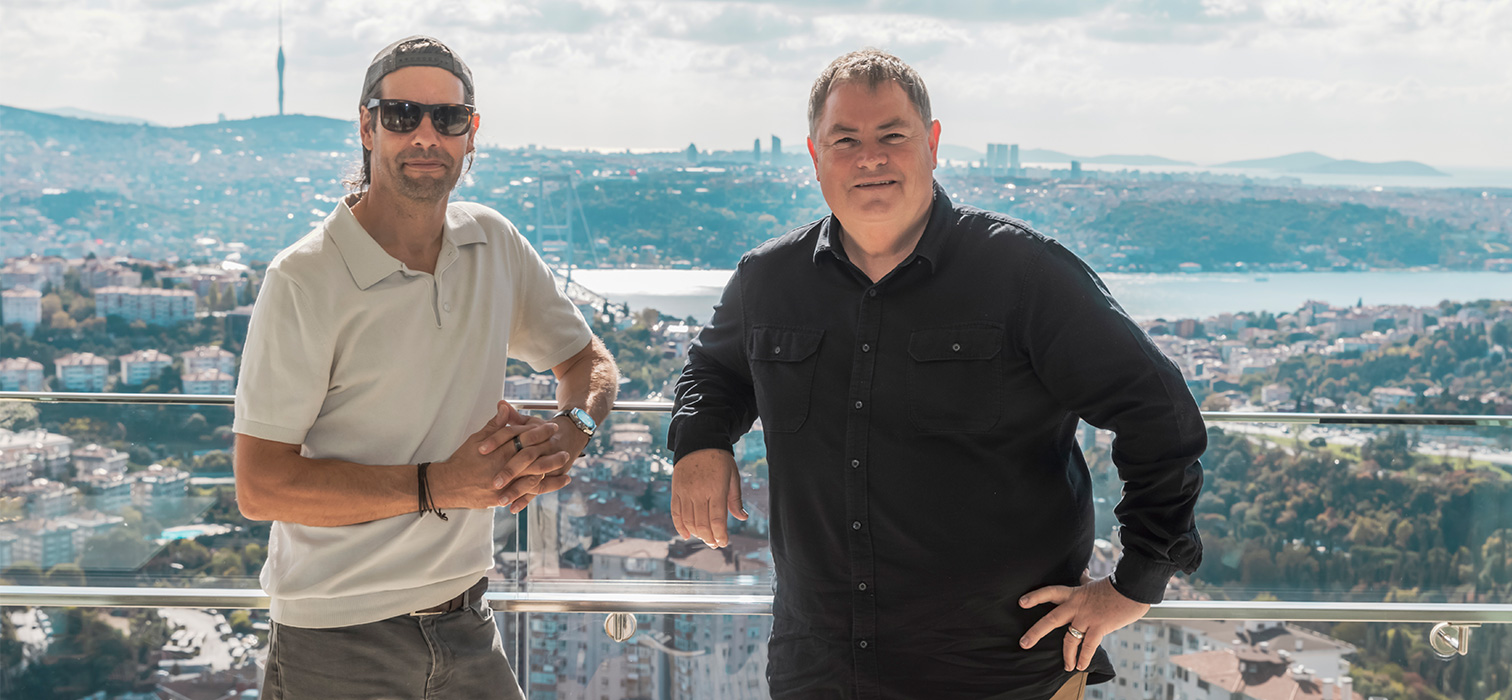

Two names pursuing a universal passion that draws millions of people together like magnets. We delve into the depths of car enthusiasm with the hosts of Wheeler Dealers, Mike Brewer and Marc “Elvis” Priestley.
Mike is one of those who discovered his curiosity for cars at a very early age, largely influenced by his father, who was a car mechanic. Once he realized he loved this job and he is good at it, he jumped straight into the industry without hesitation. 21 years ago, Wheeler Dealers started with a small program on a minor channel. The format was brand new, something that had never been done before. In a short time, it began to gain fans from all over the world. Although the names Mike hosted the show with changed over time, the format remained intact.
Since 2020, he has been with Elvis, and their chemistry is fantastic. Elvis began his career in the UK as a McLaren mechanic. After reaching the pinnacle as a McLaren pit stop technician in world-famous Formula 1 races, he left to build a career in the media world.
By the time their paths crossed, Wheeler Dealers had already become a superstar in the television world, with millions of fans in hundreds of countries. Mike and Elvis undoubtedly take this success to the next level together. They also adapt to the digital age, listening to their audience’s desires, and every day, they embark on an increasingly challenging adventure, giving new life to cars that have been neglected. Old classics, dazzling automobiles, trucks, vans… This is a passion for them, and for many others around the world as well. We hope you enjoy reading our conversation about the story of Wheeler Dealers and the unifying power of the passion for cars with Mike Brewer and Marc “Elvis” Priestley.
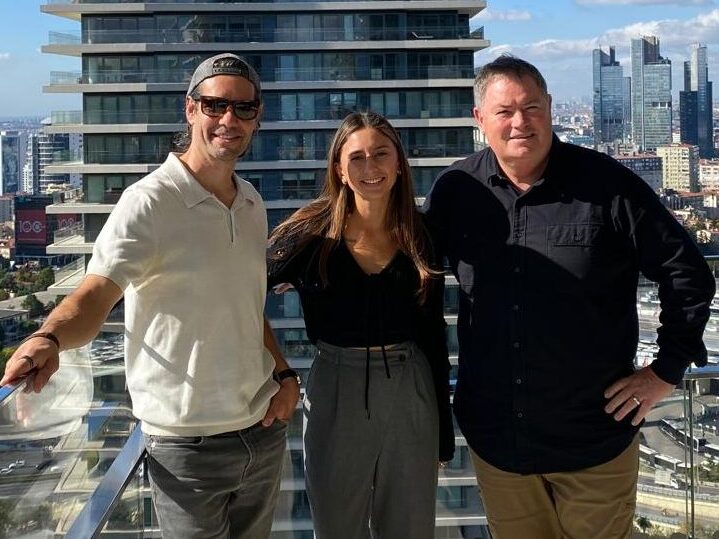
Iconic Executive Vehicles in the History of Turkish Republic
Wheeler Dealers is centered around the transformation of old, worn-out cars into something special and new. What do you think is the motivation behind preferring the restoration of an old car over buying a brand-new one?
Mike: From our point of view, obviously, is that we can make a tv show. But from the audience’s point of view, most people that want to own a classic car, want a trouble-free classic car. They want a car that is beautiful to look at, has got beautiful interior, they can put the key in ignition and turn it, and it fires into life and it works. And that’s what people get out of our show because they can see that process. That’s whats driving those people to the classic car world.
Our customers all want a finished product. If they didn’t want a finished product, they wouldn’t be our customers because they would have bought the bad car and they would have made it good. However, not everyone has every skill, of course. You know Elvis is an incredible master technician and I’m a good salesman and good at negotiating for buying parts and finding these small shops to help us work on the cars. That’s a two particular skill set so they rely on us on our show particularly. We do that for them and they get a finished product at the end. So that’s the motivation.
Elvis: People love this transformation. Actually if you look at many of the television and entertainment shows, it’s the same model isn’t it? You can think about house renovation shows, fashion make-overs. It’s all about taking something that looks like this, transforming it, so it nearly looks like this. There is a common sort of narrative that runs through almost all entertainment. You set up some sort of challenge which looks possible in the beginning, you go through the story line of the journey and then you reveal the end product, you conclude that story at the end. That’s essentially what we do, people love to see that finished product from having see where it came from in the beginning.
Mike: It all goes as for as to say that we are the first show that ever did this on the planet, 21 years ago. Successive shows like Bake Off wouldn’t be as big as they are today if it weren’t for the lights of Wheeler Dealers. You know, taking ingredients for a cake, putting them together to make a show winning cake. That is essentially Wheeler Dealers.
The program has been running for exactly 21 years. However, times have changed; along with digital platforms, consumer expectations have evolved as well… How has the process worked for you?
Mike: It puts us in front of more eyes, so it makes it much more accessible for people. Not everybody wants to buy a 100 pound a month subscription for a satellite broadcaster. However, if they can watch us by paying 5 or 6 dollars a month on a digital platform, it puts us on the radar of many more people. So I think it’s a positive move that a lot of our content goes on to streaming platforms because it makes it much more accessible.
Elvis: Yes and it also means that people can watch us at any time of any day and they can stream sometimes the whole season in one go if they want to. For us that means we’re constantly connected to the audience through things like social media these days. We’re constantly answering questions, we’re constantly getting feedback from the people who watch the show. And we get that so much more quickly now than we ever used to in the past. With that feedback, we can go in and talk about how we change the next generation of these shows which is exactly what we’re doing right now.
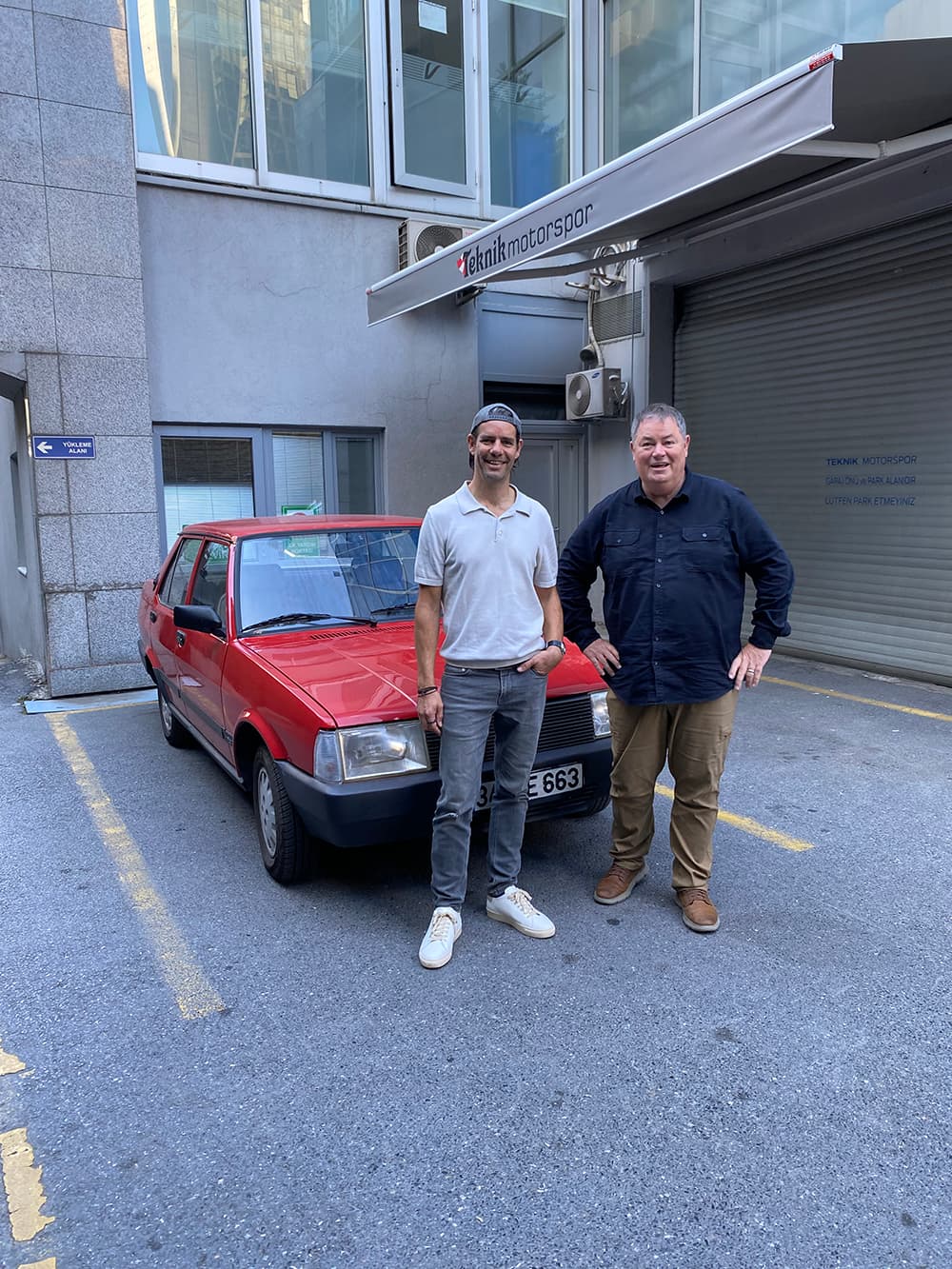
CARS BRING US TOGETHER
You travel the world for the program. How do car cultures vary from country to country? Do you have any experiences where you faced challenging conditions?
Mike: This is strange, okay? I’ve been around the world a few times, making car shows. I will say that in each territory that I visit, the car culture is different but the car language or the love of the cars is exactly the same. From when we were in the Outback of Australia and what we’ve done there to being in a Hyper Car event in Miami, the language is the same.
It’s all about the cars. That’s universal. Me or Elvis could stand in front of a Polish guy who can’t speak a word of English, and we can’t speak Polish, but if there’s a car in front of us, we can all speak the same language about the car. That is a very brilliant thing. It’s an amazing thing to be a part of it globally. So yes, cars bring us together.
Elvis: I think so too. There’s such a love for cars, it probably brings people together. As Mike said, one of the things that has been notable when we travel the world, is that we meet people from car clubs and from these groups that get together. And we’re immediately welcomed in because we also share the same love of cars that they do. That’s been really interesting. The other side was seeing how some different people in different parts of the world use the same car very differently.
For example, pick-up trucks. In the UK, they are just often built as vans, they are loaded up with building equipments. But in Australia, they are literally a sort of survival vehicle for people getting around their farms and moving around these massive wide open spaces. So have to live in those vehicles at times and have survival kit in there in case it breaks down. There is very different purposes and uses for the same vehicle in different parts of the world.
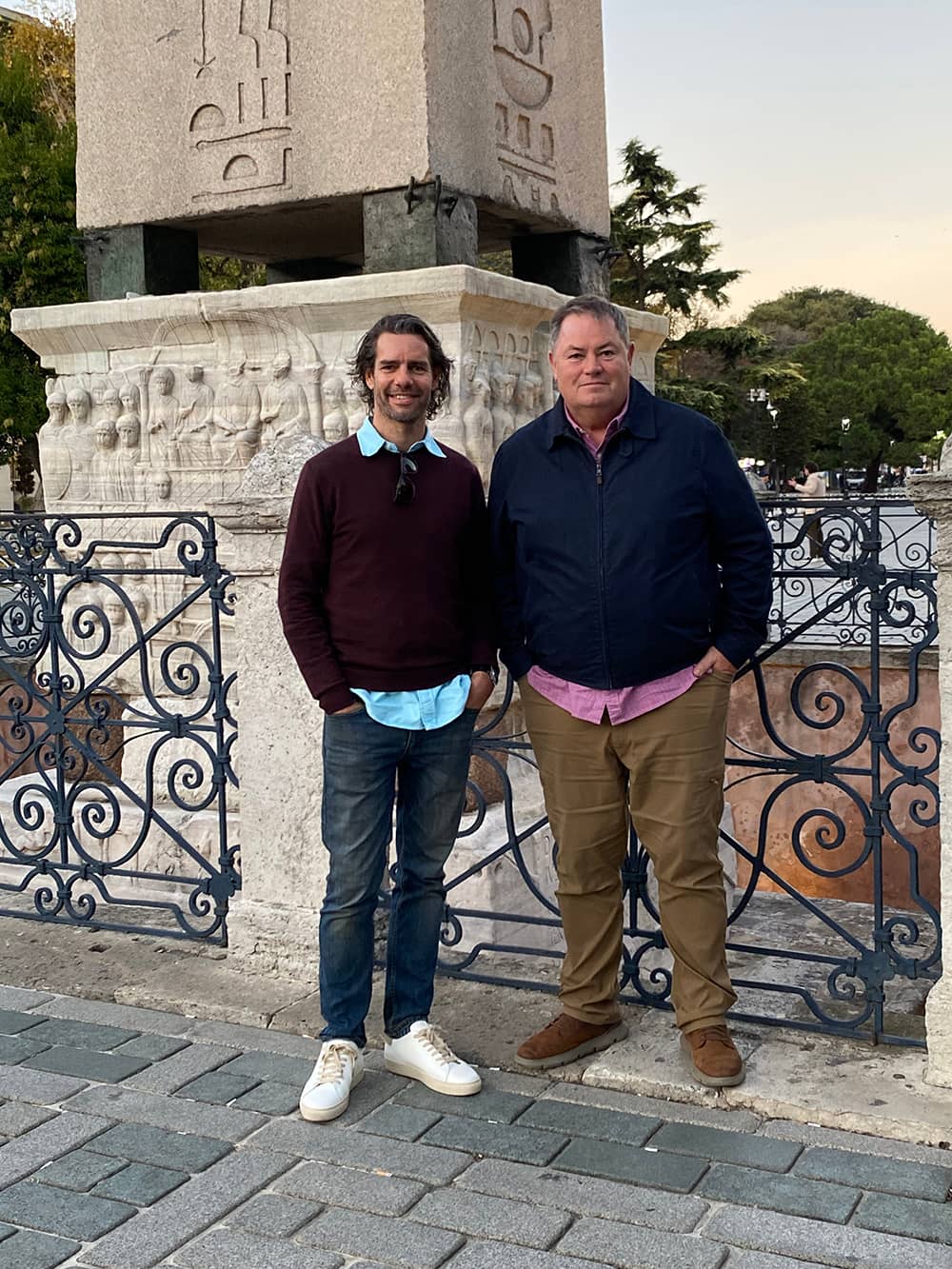
I know that you’ve worked with all kinds of cars, from the everyday classics to the high-end dream cars. What’s the one car (or few) restoration project(s) that sticks out most in your memory and why?
Mike: Further back for me, I’ve got some really special cars with Ed China back in the day. Everything from a 19-16 Cadillac which was incredible to work on, to Mazda and Mini with Ed. Recently, we worked on a fantastic Escort Cosworth with Elvis. Additionally, the first car we worked on together in the Wheeler Dealers format was a Mini Mark 1 850. I absolutely love that car. It had a soul and it had a real energy about it.
But you know, me and Elvis, with the greatest respect to my previous two co-hosts, I think we have been challenged more because the shows demanding a bit more challenge. There has been a couple of cars that have been really tough. There has been a Mark 1 Astra GTE, I actually bought the car in boxes, the boxes were the parts.
Elvis: Like a jigsaw puzzle, but half of the bits missing.
Mike: With no instruction manual. None. There is no “this is how you build this car.”, and we had to build it. That was a real challenge, so that’s a special car. We’ve also done things like a gigantic van, a Mark 1 Ford Transit Van. Which was huge! To fit it in the workshop was tight but restore every panel on it, repaint it, do the engines, it was an incredible achievement. So there’ve been some really special cars with great memories throughout the years.
Elvis: There has been a real range of stuff. I think in all of those, some really basic classics that turned up in boxes got all the way through. So that the current series, the world tour, we’re working on a McLaren P1 Hypercar. It’s an incredible a ray of different vehicles. I think that’s what nice about it, it’s been a real mix of stuff. I particularly loved the Porsche 911 SC. Little red car that was just beautiful when we finished. It’s kind of my dream car so I didn’t really want to let it go.
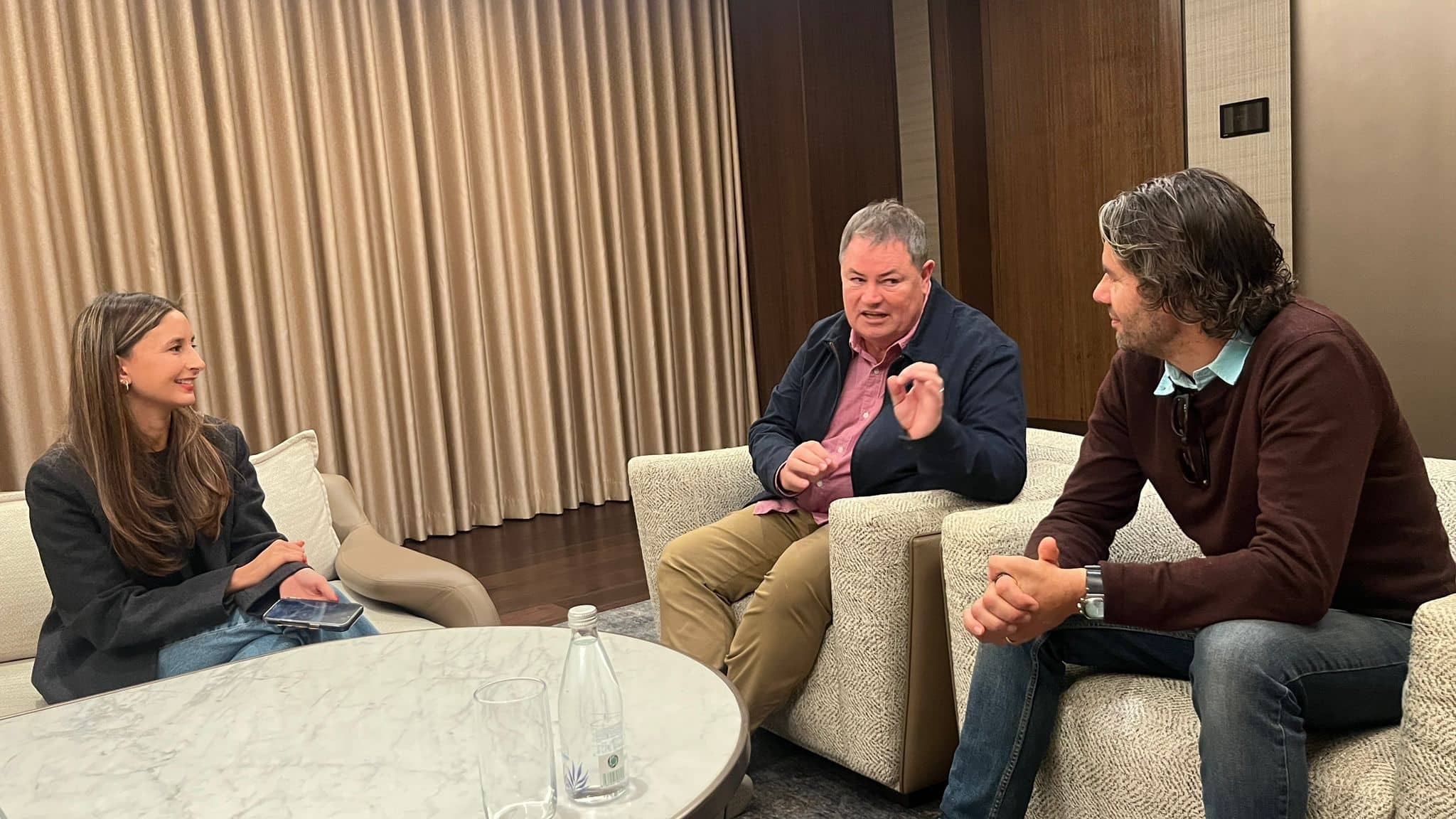
What criteria are important when restoring a car? For example, leaving the exterior the same but changing the mechanical system inside. Where do the limits begin and end?
Mike: This is going to be the same answer for both of us. Cars are only original once. So a car is an original car once in its life. For me and Elvis, if a car is original on the outside, leave it. If it doesn’t need any attention, like its not got any massive holes in it, if the panels are not falling off, if you can save the originality of the car, save it. If its got holes all over it, of course you got to repair it and paint it. We would prefer not to, we try to preserve the originality.
There is something really nice in the car world, its called a “Restomod Movement”. It’s where you can take an original car, keep it original on the top, but completely update it underneath. We did the same with this little Mini that I spoke about earlier. The Mini that we had was a 1968 Mini. It had drum brakes, we upgrade it to disc brakes. But you can’t see the disc brakes, they are hidden behind the hubcaps. It had an old style ignition, we upgraded it to an electronic ignition. So we upgraded the car and kept its originality, but we made the car better. And that, for me and Elvis, is the utopian sort of classic car restoration.
Elvis: I think there is no golden rule for everything. You have to take each car one at a time, each as an individual. Because when there are millions of a particular car, having an original one is just lost in a sea of millions of others. So sometimes you find a car that is really popular and there is lots of them. It opens it up to people, and they do all sorts of things with them, and that’s fine.
People will lower them and put big wills on them and do all these different things to them. It’s fine because they each got their own appeal so the real originality as Mike says, is only really of strong value when that car was already original. Because at that point, its got some value inherently in it because it’s the original car. So you don’t want to lose that where its possible.
Mike: Another challenge that we face when we’re putting Wheeler Dealers together, we’re now so long in the tooth, we’ve been around for 21 years. Most of the classic cars that we’ve seen, has been restored not once, not twice, maybe they’ve been restored three times. By the time we get it, they’ve gone through three recyclings. That becomes a bit of a challenge.
In an interview, you mentioned that you know the Turkish car model, Anadol. Do you have any plans to work on a Turkish car and film the show here in the future?
Mike: Me and Elvis spent a lot of time planning the next series of Wheeler Dealers. We have been talking to our bosses about the next series. Of course we’d love to come to Turkey because we’re only going to car cultures that are rich, they have a national car, are they are passionate about it. We can most definitely tell by being here, every single person we met here mentions Anadol, we know that at some point in our future we have to do an Anadol. So yes, expect to see us back in Turkey in the future.

